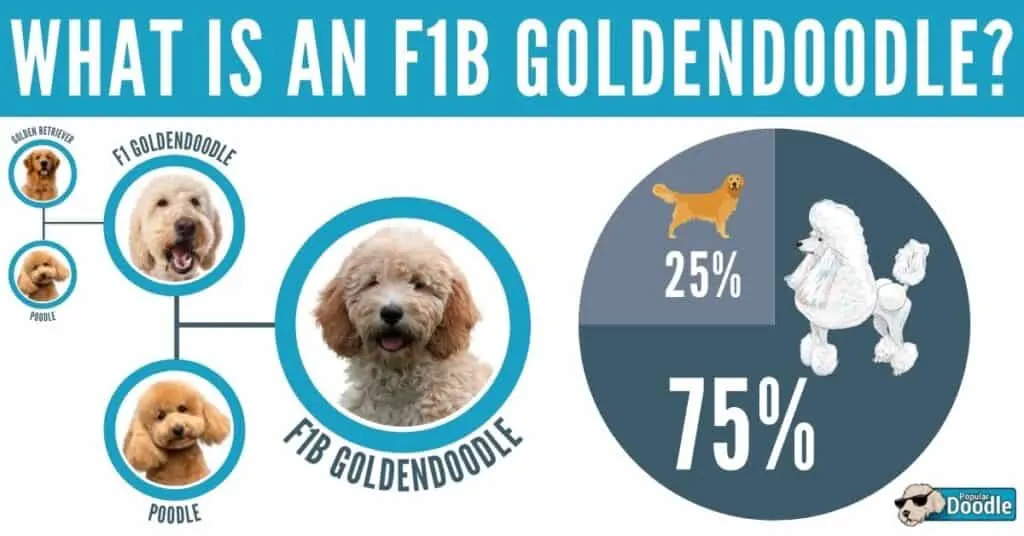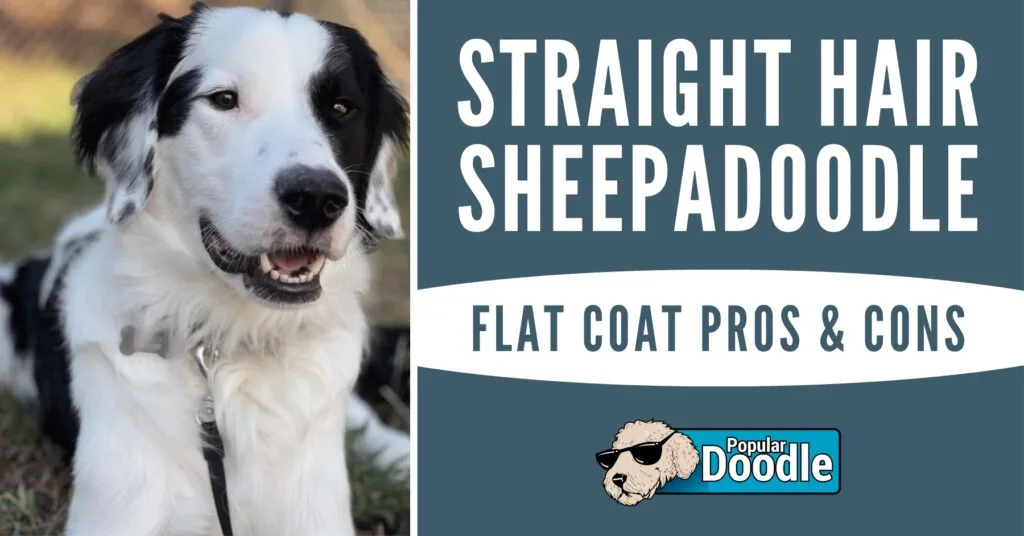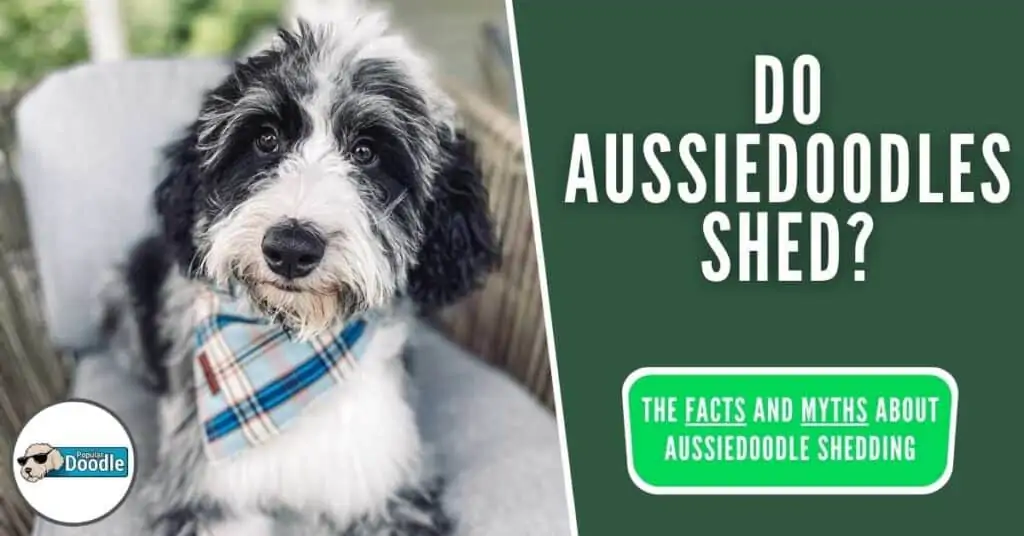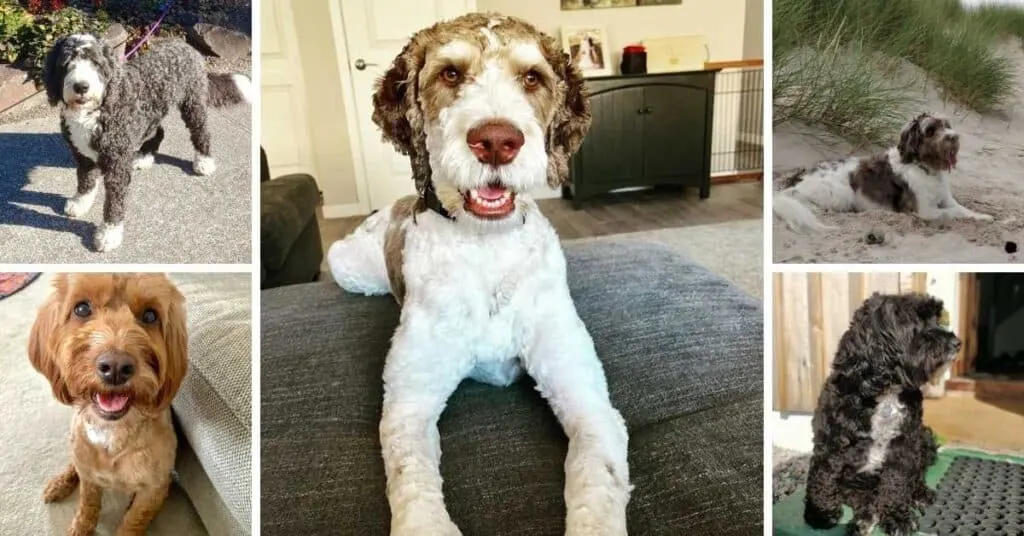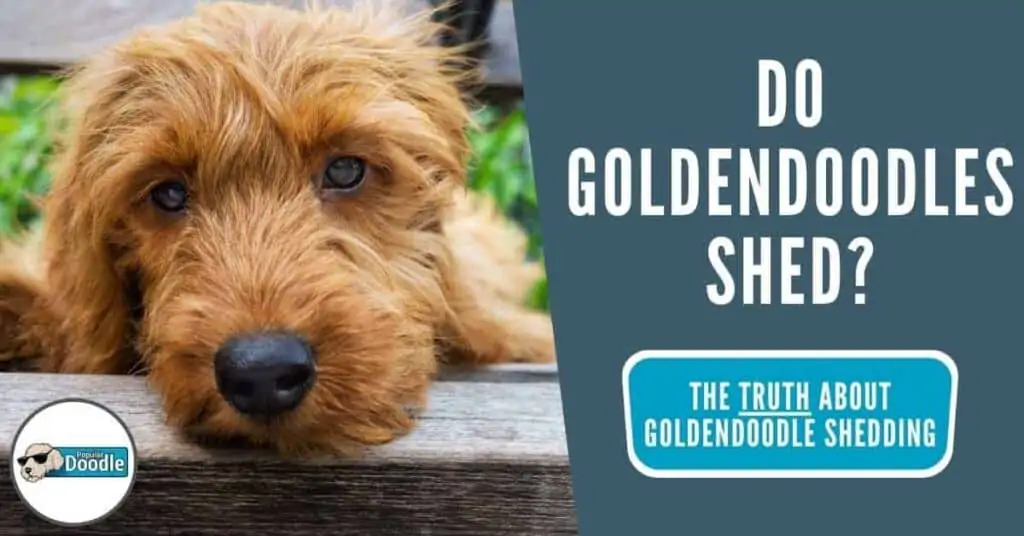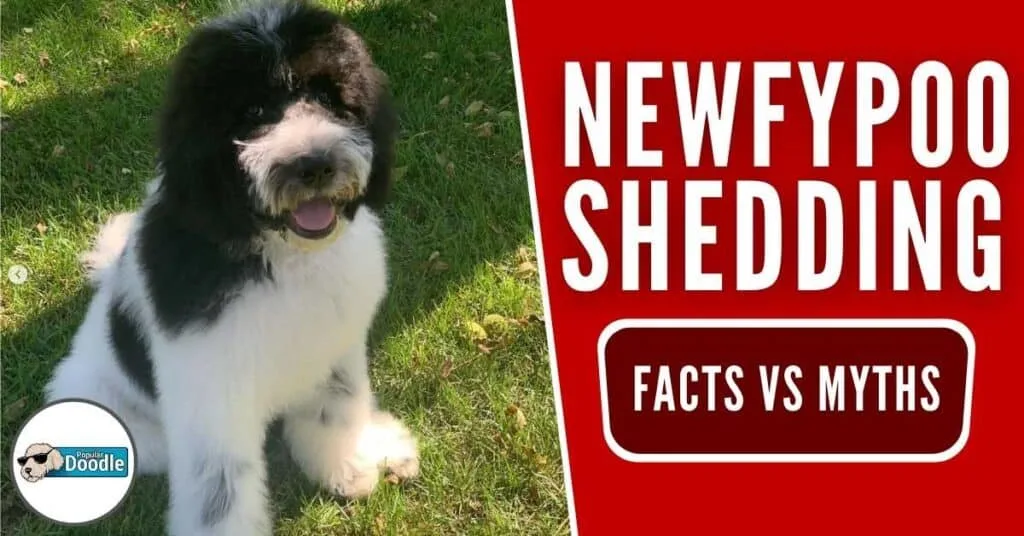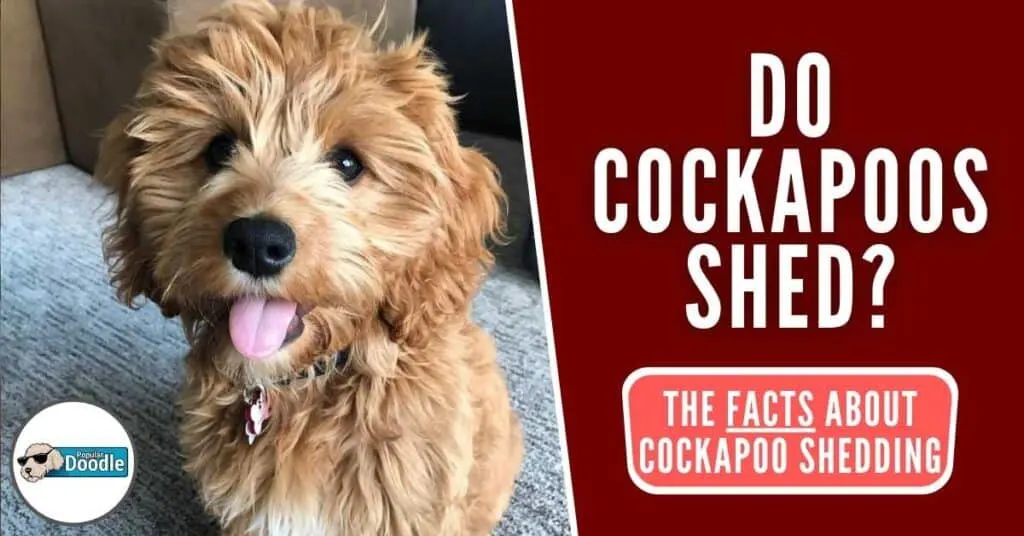
After spending a long time searching for the perfect dog for your family, you’ve finally decided on a Cockapoo! Now the big question you may have is ”do Cockapoos shed?”
Well, don’t worry! This article will tell you everything you need to know about your pup’s potential for shedding and what to do if it does occur.
Do Cockapoos Shed?
While Cockapoos will likely shed less than a purebred Cocker Spaniel, they are NOT guaranteed to be completely non-shedding.
Cockapoos are a mixed breed that contain both a non-shedding dog (the Poodle) as well as a dog that sheds (the Cocker Spaniel.) Due to the presence of a breed that sheds, depending on how the genetics play out, your puppy may or may not be prone to shedding.
How much your Cockapoo puppy sheds will depend on a variety of factors including the genes they received from each of their parents, the time of year, and their overall health.
This may seem complicated, but don’t worry, everything you need to know will be explained below!
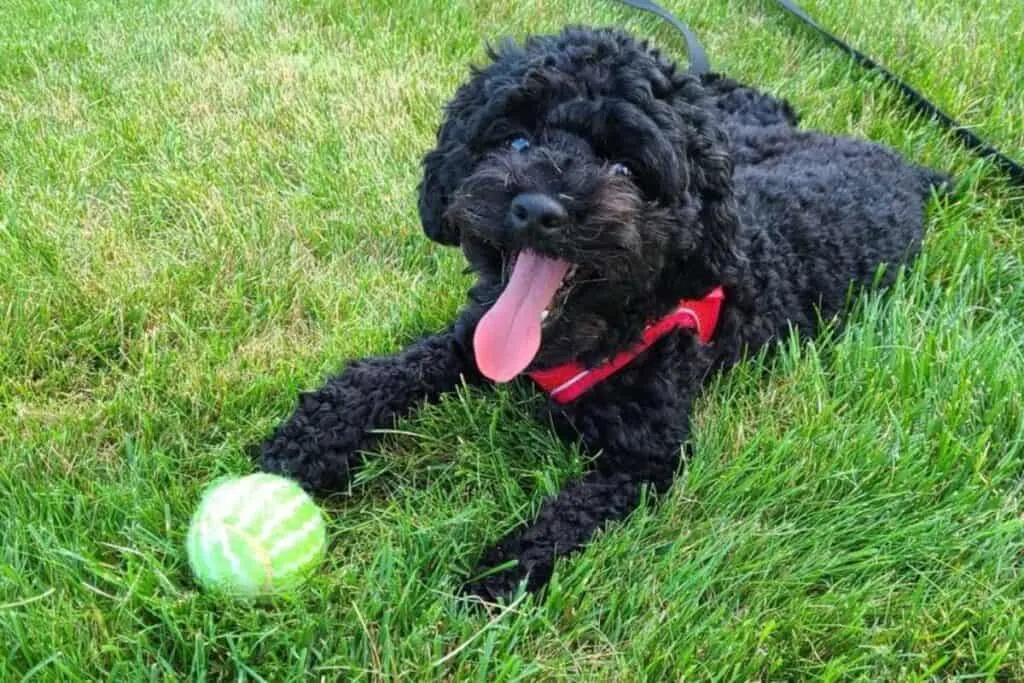
Why Do Cockapoos Shed?
Here are the four most common types of Cockapoo shedding and why they occur.
Year Round Cockapoo Shedding
The actual process of losing hair is normal, and every mammal with fur or hair will experience some degree of hair loss over time.
In fact, you might have even noticed loose hair on your pillow or in the shower. This is the same type of shedding that dogs experience as their hair grows.
As long as your dog isn’t losing excessive hair at once, there is no need for concern.
In dog breeds that are renowned for their lack of shedding, like the Poodle, their hair is constantly growing. The hair shaft themselves have a longer lifespan and therefore don’t die and fall out as often as other dogs.
Poodles also don’t have an undercoat, which in other dogs is typically the source of the most shedding.
Seasonal Cockapoo Shedding
If you end up with a Cockapoo that sheds, you may notice a little more hair than normal during the spring and fall.
This is because your dog’s body is naturally adjusting to the changes in weather. It grows thicker or becomes thinner in order to regulate their temperature.
This is another very normal process that does an important job of keeping your Cockapoo healthy.

When Do Cockapoos Shed Their Puppy Coat?
When puppies of any breed are born, their coats are usually very fine and short, much like a human baby’s hair. Even naturally fluffy dogs may have fur that looks flat and shiny at birth.
When Cockapoos are about 5-12 months old, they will start to shed this fine baby hair and grow in their adult coat.
During this time you might see changes in coat color and texture, and notice some of the baby fur around the house. This type of shedding happens in all dogs, and isn’t necessarily a sign that your Cockapoo will always be a shedder.
You won’t truly know if your pup sheds regularly until they’ve fully matured.
Read More: Cockapoo Size Full Grown: How Big Do Cockapoos Get? (Teacup, Toy, Mini, Standard)
Health Issues
It may be a worrisome sign if your Cockapoo loses a lot of hair very quickly, especially if they don’t typically shed a lot. Bald spots and overall thinning can be a sign of nutrition problems, parasites, or other illnesses.
Read More: Cockapoo Health Issues: 10 Common Cockapoo Health Problems to Look Out For!
This shedding may be accompanied by excess scratching or licking, and should be addressed by a veterinarian as soon as possible to determine the cause.
Have a question for a vet? Click here to live chat instantly with a verified veterinarian!
Not only can it be emotionally challenging to care for a sick dog, but it can be financially challenging as well. Even a “simple” trip to an emergency veterinarian can cost in the thousands of dollars!
That’s why I recommend that Cockapoo owners purchase high-quality pet insurance. With a reputable company like Healthy Paws or Embrace, they’ll cover up to 90% of these costs!
With a pet insurance policy, you’ll never have to stress about not being able to afford the best treatment for your pup.
How Much Do Cockapoos Shed?
While Cockapoos aren’t guaranteed to be non-shedding, they’re not likely to shed a lot either. Thanks to their Poodle DNA, a Cockapoo will typically shed significantly less than an average Cocker Spaniel.
The odds of your Cockapoo shedding as well as how much they’ll shed is almost entirely influenced by the genetics passed along from their parents.
Below we’ll talk about different “generations” of Cockapoos and how likely each one is to result in a puppy that sheds.
Put simply, a Cockapoo’s generation refer to how close they are to each of their parent breeds—the Poodle and the Cocker Spaniel. Feel free to check out our article about how Cockapoo generations work for a more detailed explanation!
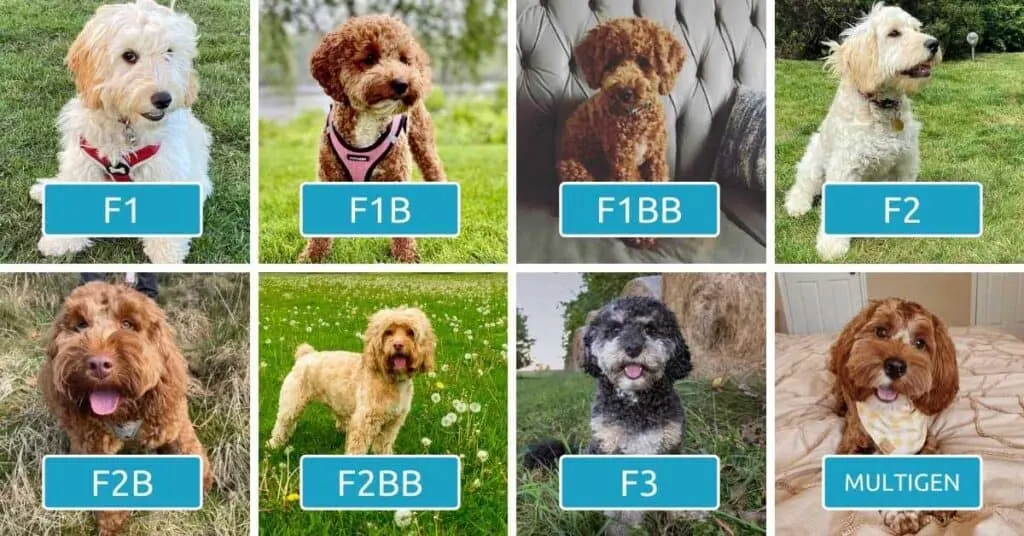
F1 Cockapoos
F1 Cockapoos are one of the most likely generations to shed. Since they are theoretically 50% Poodle and 50% Cocker Spaniel, this means their coat could lean more towards one breed than the other.
The coats of F1 Cockapoos can resemble the fine, fluffy ones of their Poodle parent, or be longer and heavier like their Cocker Spaniel parent. If it’s the latter, they will probably shed at least a little bit.
It can be a bit of a tossup when it comes to first generation Cockapoos, as their 50/50 DNA makes it impossible to predict which parent they will take after. You may end up with a Cockapoo that looks a lot more like a Poodle, while their littermate looks like a Cocker Spaniel.
If you choose an F1 Cockapoo, you should expect at least a little shedding. It may not always happen, but at least you’ll be prepared for it!
F1B Cockapoos
The genetic makeup of F1B Cockapoos is typically closer to that of a Poodle than the Cocker Spaniel. This is because one of their parents is a purebred Poodle while the other is an F1 Cockapoo.
This essentially makes their genetic makeup 25% Cocker Spaniel and 75% Poodle.
So how does this impact shedding? F1B Cockapoos are most likely going to shed less than an F1 would, but again, it still can’t be guaranteed.
This is a good choice for mild allergy sufferers, but people with more severe dog allergies may want to keep reading to learn about F1BB Cockapoos.
F1BB Cockapoos
F1BB Cockapoos are as close as you can typically get to being a purebred Poodle without actually being one.
In theory, their DNA is 87.5% Poodle, and as a result, they are the generation of Cockapoo that is least likely to shed.
If you can’t compromise on shedding but still really want this breed, an F1BB is a great choice.
F2 Cockapoos
F2 Cockapoos are a bit of a lottery ticket when it comes to shedding, because a lot of different Poodle / Cockapoo / Cocker Spaniel combinations can result in this generation.
Due to the large amount of variation and the difficulty to predict traits, many breeders shy away from F2 Cockapoos.
An F2 Cockapoo may or may not shed, but it’s not a safe bet if having a low or non-shedding dog is a priority for you.
F2B Cockapoos
Just like F1B Cockapoos, dogs from this generation have more Poodle DNA in them than Cocker Spaniel. That means that they have similar shedding likelihoods to the F1B generation as well.
Typically, F2B Cockapoos will have better odds of being non-shedding than F2 Cockapoos. However, the F1BB or F2BB generations are even safer bets.
Dealing With Cockapoo Shedding
While dealing with shedding can be annoying, it doesn’t have to be the end of the world. There are things you can do to both reduce shedding and manage it when it does occur.
Feed a Nutritious Diet
A healthy diet is important for the health of your Cockapoo, but did you know it can also help cut down on shedding?
Feeding your Cockapoo a balanced, complete dog food is a great first step to making sure they’re not shedding excessively due to improper nutrition.
Some studies have suggested that omega-3 fatty acids can help with healthy hair growth in dogs, so you could consider adding it to your pup’s meals. This being said, never add any new vitamins or supplements to your dog’s diet without first consulting with your vet.
Have a question for a vet? Click here to live chat instantly with a verified veterinarian!
Cockapoos will also benefit from lots of water. Proper hydration results in a healthier coat and reduces the chance of skin conditions that may exacerbate shedding.
A good rule of thumb is that your Cockapoo should drink around one ounce of water every day for each pound they weigh.
Bathe & Brush Regularly
Baths are a great way to cut down on shedding, but only when needed.
A regular monthly bath should be enough to keep your dog smelling and looking great. Bathing your dog too frequently, however, can actually dry out their skin and cause the opposite problem!
Grooming your Cockapoo on a regular basis will loosen dead hair and allow it to be brushed away all at once rather than sprinkled throughout your house.
Regular grooming also helps keep your pup comfortable, and prevent matting in curly dogs like the Cockapoo. Brushing should be done at least once a week.
Choose the Right Grooming Equipment
If your Cockapoo sheds, there are three essential tools you’ll want to keep handy—a slicker brush, a de-shedding tool, and a hydrating, de-shedding shampoo.
All Cockapoos will benefit from a high-quality slicker brush. If you’re looking for a truly fantastic brush that is guaranteed to last you a long time, I would highly recommend the Chris Christensen Big G brush in the small size.
Now for a de-shedding tool. Whether or not you need this depends entirely on your Cockapoo’s amount of shedding. The Furminator De-shedding tool is a great choice that is easy to use and will last a lifetime.
Lastly, using a specialty hydrating shampoo can significantly reduce shedding. We recommend Burt’s Bees for their all-natural, puppy-safe ingredients that will leave your dog smelling amazing!
Buy a Vacuum Designed for Pet Hair
Another great tool to always have handy for managing shedding is a good vacuum.
While pretty much every homeowner is going to have a vacuum, when getting a dog, you need to make sure you have one that can handle pet hair and dander. Check out these great options you can find on Amazon:
Invest in an Air Purifier
A great, underrated investment for pet owners is an air purifier. These are especially helpful if you’re someone who suffers from mild allergies, as they can help sanitize and filter the air to reduce your symptoms.
While they can be a bit pricey, they more than make up for it in their usefulness. Here are some of our favorite options:
Final Thoughts
So now you know the complete answer to the question, “do Cockapoos shed?”
While you can’t guarantee that your Cockapoo won’t shed, by selecting the correct generation for your family you can stack the odds in your favor.
If you do wind up with a shedding Cockapoo, all of the methods we listed here can help ensure that shedding is kept to a minimum. That way you can healthily co-exist with your new fluffy family member!






